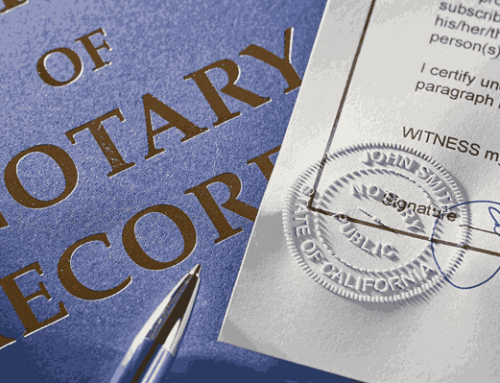Legal Nurse Consultants (LNCs) are highly skilled and trained professionals who blend their clinical expertise with an understanding of the law to provide valuable assistance in legal cases involving medical issues. Whether it’s a medical malpractice lawsuit, a personal injury claim, or a workers’ compensation case, LNCs bring their specialized knowledge to help attorneys navigate the intricate and often perplexing world of healthcare.
If you’re a nurse looking for a career change or seeking to expand your horizons within the nursing profession, becoming a Legal Nurse Consultant might be the path less traveled but incredibly rewarding. In this comprehensive guide, we’ll explore the ins and outs of the profession, including what Legal Nurse Consulting entails, the key responsibilities of LNCs, the qualifications required, and the steps to embark on this fulfilling journey. So, if you’re intrigued by the idea of combining your nursing skills with the legal arena, read on to discover how you can become a Legal Nurse Consultant.
What Does a Legal Nurse Consultant Do?
Their primary role is to bridge the gap between healthcare and the legal system, offering valuable insights, analysis, and support in a variety of legal matters. Here’s a closer look at what Legal Nurse Consultants do:
- Medical Record Review: LNCs meticulously review and analyze medical records, including patient charts, laboratory reports, and diagnostic tests, to identify discrepancies, inconsistencies, and potential areas of concern. This review helps attorneys understand the medical aspects of a case.
- Case Evaluation: LNCs assess the merit of a case by examining the medical evidence and determining whether there is a basis for a legal claim. They provide attorneys with their professional opinions on the strength of the case and its potential outcomes.
- Expert Witness Preparation: In cases where medical expertise is required in court, LNCs assist in preparing medical experts to testify. They help experts understand the legal aspects of the case and ensure their testimony is clear and relevant.
- Research: Legal Nurse Consultants conduct extensive research on medical literature, healthcare standards, and regulations to support legal arguments and strategies. They keep up-to-date with the latest developments in healthcare to provide accurate information.
- Documentation and Reports: LNCs create detailed reports and summaries of medical records and research findings in a format that is understandable to legal professionals. These reports are crucial for building a strong case or defense.
- Medical Expert Liaison: LNCs often serve as intermediaries between attorneys and medical experts, facilitating effective communication and ensuring that the expert’s opinions align with the legal strategy.
- Witness Interviews: They may interview witnesses, including healthcare providers, patients, and other relevant individuals, to gather additional information and perspectives on a case.
- Trial Support: During trials, LNCs provide support by assisting attorneys with the presentation of medical evidence, cross-examining opposing medical experts, and helping to craft persuasive arguments.
- Education and Consulting: Some LNCs also offer educational services to legal professionals and healthcare organizations, helping them understand the intricacies of medical-legal cases and offering guidance on risk management and litigation strategies.
- Diverse Case Types: Legal Nurse Consultants can work on a wide range of cases, including medical malpractice, personal injury, workers’ compensation, product liability, and more.
Where Do Legal Nurse Consultants Work?

Legal Nurse Consultants (LNCs) can work in various settings, both independently and as part of larger organizations, to provide their specialized expertise in cases involving medical issues. Here are some common work environments for LNCs:
Law Firms: Many LNCs are employed directly by law firms. They work alongside attorneys and legal teams to assist in medical-legal cases. LNCs help attorneys understand medical records, assess the merit of cases, and prepare for trials or settlements.
- Insurance Companies: Insurance companies often hire LNCs to evaluate medical claims, especially in cases related to health insurance, workers’ compensation, and personal injury. LNCs help insurers determine the legitimacy of claims and assess the extent of medical damages.
- Hospitals and Healthcare Facilities: Some LNCs are employed by hospitals, healthcare systems, or medical facilities. They may assist in risk management, quality assurance, and compliance by applying their nursing knowledge to help prevent potential legal issues.
- Government Agencies: Government agencies, such as those responsible for investigating healthcare fraud and abuse, may employ LNCs to review medical records and provide expert analysis in legal proceedings.
- Independent Consulting: Many LNCs choose to work as independent consultants. They may take on cases on a contract basis, working for various clients, including law firms, insurance companies, and individual attorneys. Independent LNCs have the flexibility to choose the cases they want to work on and set their own schedules.
- Legal Nurse Consulting Firms: Some consulting firms specialize in providing LNC services to law firms and corporations. LNCs working for these firms often have access to a variety of cases and can collaborate with other LNCs and legal professionals.
- Academic and Educational Institutions: LNCs with extensive experience and expertise may work as educators, teaching courses or workshops on legal nurse consulting, healthcare law, or related subjects at universities, colleges, or vocational schools.
- Healthcare Compliance and Risk Management Departments: In healthcare organizations, LNCs may work in compliance and risk management departments to help ensure that the institution adheres to healthcare regulations and minimizes legal risks.
- Pharmaceutical and Medical Device Companies: LNCs may be employed by pharmaceutical or medical device companies to assist with product liability cases, regulatory compliance, and legal matters related to their products.
- Correctional Facilities: Some LNCs work in correctional facilities, providing medical-legal expertise in cases involving inmate healthcare, including issues related to medical negligence and inmate rights.
The versatility of Legal Nurse Consulting allows professionals in this field to choose from a wide range of work settings based on their interests and expertise. Whether working independently or as part of a larger organization, LNCs play a vital role in helping legal professionals navigate the complexities of healthcare-related cases, contributing to the pursuit of justice in the legal system.
Are Legal Nurse Consultants in Demand & What is Legal Nurse Consultant’s Salary?

Factors contributing to the demand for Legal Nurse Consultants include:
- Complexity of Healthcare Cases: Healthcare cases, especially those involving medical malpractice and personal injury, often require a deep understanding of medical terminology, procedures, and standards of care. Legal professionals value the expertise that LNCs bring to such cases.
- Rising Healthcare Litigation: The healthcare industry is prone to legal disputes, and the number of medical-related lawsuits has been on the rise. This trend has increased the need for professionals who can bridge the gap between medicine and law.
- Healthcare Regulatory Changes: Changes in healthcare laws and regulations can lead to an increased need for LNCs to help healthcare organizations and legal teams navigate compliance and potential legal issues.
- Aging Population: The aging population often requires more complex medical care, which can result in an uptick in healthcare-related legal cases, further driving demand for LNCs.
- Insurance Claims: Insurance companies rely on LNCs to evaluate medical claims and determine their validity, especially in workers’ compensation and personal injury cases.
- Expert Witness Services: LNCs often serve as expert witnesses in court, providing credible testimony about medical aspects of cases. Their testimony can be crucial in complex litigation.
Now, let’s discuss Legal Nurse Consultant salaries. The salary of an LNC can vary based on factors such as location, years of experience, education, and the specific employer.In the United States, the median annual salary for Legal Nurse Consultants ranged from approximately $70,000 to $120,000 or more. Those with more experience, advanced degrees, and certifications often command higher salaries.
How to Become a Legal Nurse Consultant
Becoming a Legal Nurse Consultant (LNC) involves a combination of nursing expertise, legal knowledge, and practical skills. Here’s a step-by-step guide on how to become a Legal Nurse Consultant:
Earn a Nursing Degree: Start by obtaining a nursing degree. Most LNCs have at least a Bachelor of Science in Nursing (BSN), but some may hold an Associate Degree in Nursing (ADN) or a diploma from a nursing program. A BSN can provide a stronger foundation for this career.
- Gain Nursing Experience: Before transitioning into legal nurse consulting, it’s essential to have practical nursing experience. Many LNCs have worked as registered nurses for several years to build their clinical knowledge.
- Become a Registered Nurse (RN): To practice nursing legally, you must pass the NCLEX-RN (National Council Licensure Examination for Registered Nurses) and obtain state licensure. The specific requirements may vary by state.
- Pursue Legal Nurse Consulting Certification: While certification is not always mandatory, it can enhance your credibility and marketability as an LNC. The American Association of Legal Nurse Consultants (AALNC) offers the Legal Nurse Consultant Certified (LNCC) credential. To qualify for the LNCC exam, you typically need a minimum of 2,000 hours of clinical practice as an RN within the past five years, along with a minimum of 3,000 hours of experience in legal nurse consulting.
- Legal Education: Familiarize yourself with the legal aspects of healthcare. You can achieve this by taking courses in healthcare law, medical ethics, and related legal topics. Some LNCs pursue a Master of Science in Legal Nurse Consulting or enroll in certificate programs specifically tailored to the field.
- Work as a Nurse Paralegal or Legal Nurse Consultant Assistant: To gain experience in the legal aspect of healthcare, consider working as a nurse paralegal or as an assistant to an experienced LNC. This experience will help you understand the role of LNCs within the legal system.
- Networking: Attend legal and healthcare industry events, join professional organizations, and network with legal professionals, attorneys, and other LNCs. Building a strong professional network can open up opportunities and provide valuable insights.
- Medical Record Review: Hone your skills in reviewing and analyzing medical records, as this is a fundamental task for LNCs. Pay attention to detail and develop the ability to identify inconsistencies or areas of concern.
Some LNCs choose to specialize in specific areas such as medical malpractice, personal injury, workers’ compensation, or product liability. Specialization can make you more attractive to clients and attorneys in those specific fields.
Decide whether you want to work independently as a freelance LNC or seek employment with a law firm, insurance company, or healthcare organization. Starting your practice may involve setting up your own business and marketing your services.
Continuing Education:
Stay up-to-date with changes in healthcare law, regulations, and medical advancements. Continuing education and attending relevant seminars or workshops are essential for maintaining your expertise.

Summing Up
To become a successful Legal Nurse Consultant, aspiring professionals should focus on building a solid educational foundation, gaining practical nursing experience, and obtaining the necessary licensure and certification. Continuous learning, networking, and honing analytical skills are also crucial elements of this career.
Whether working independently or as part of a legal team, Legal Nurse Consultants have the opportunity to make a meaningful impact by ensuring that justice is served in healthcare-related cases. With dedication and commitment, you can embark on this rewarding journey and contribute to the intersection of healthcare and the law as a knowledgeable and trusted expert in the field of Legal Nurse Consulting.





